Important Dates
| Release of data, code, and metrics for training | |
| Release of examples for submission files | |
| Release of data and metrics for testing | |
| Challenge workshop website goes live | |
| Submission deadline for prediction results files Final Round 3 | Mar. 7 2022 23:59 PST |
| Manuscript submission deadline | |
| Notification of ISBI sub-proceedings acceptance | |
| KNIGHT Workshop | |
| Camera-ready submission to ISBI sub-proceedings | Apr. 15, 2022 |
| Publication of challenge outcomes | Oct. 01, 2022 |
Like the KNIGHT Challenge?
Try the BRIGHT challenge for breast tumor images.
Organizers
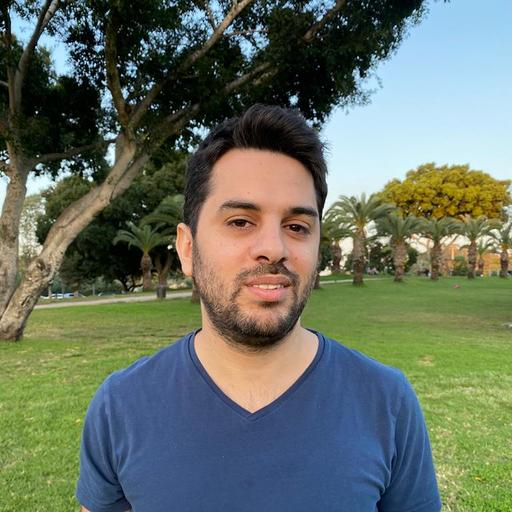
Moshiko Raboh, IBM Research - Haifa, Israel
-
Bio
Moshiko Raboh is a computer vision and machine learning research scientist in the Medical Imaging Solutions group at IBM Research - Haifa. He obtained his computer science M.Sc and double-major computer science and physics BSc at Tel-Aviv University and gained over the years a rich experience both as a computer vision and machine learning research scientist and as a software architect.
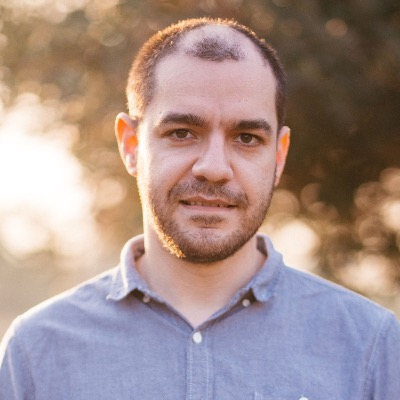
Alex Golts, IBM Research - Haifa, Israel
-
Bio
Alex Golts is a computer vision and machine learning researcher in the Medical Imaging Technologies group at IBM Research - Haifa, Israel. He received his BSc (2008) in Electrical Engineering and Physics, from the Tel-Aviv University, Israel. He received his MSc (2015) in Electrical Engineering, from the Technion - Israel Institute of Technology. Since 2014, he has been focused on learning based approaches, applied to a variety of challenging problems in different domains. He is a member of the team that earned the 2nd place and received the Best Paper Award in the KiTS21 challenge [8].
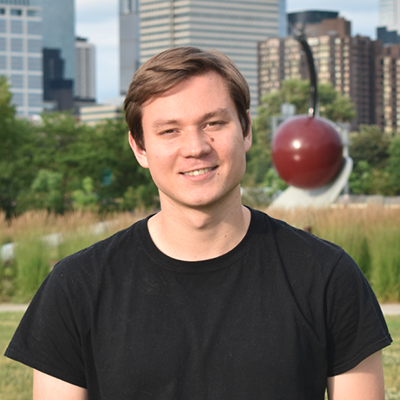
Nicholas Heller, University of Minnesota, Minneapolis, United States
-
Bio
Nicholas Heller is a PhD candidate in Computer Science at the University of Minnesota. His re- search interests are in semantic segmentation of lesions in cross-sectional imaging and the extraction of segmentation-based biomarkers to predict clinically-relevant outcomes. Nick was the lead organizer for the KiTS19 and KiTS21 challenges.
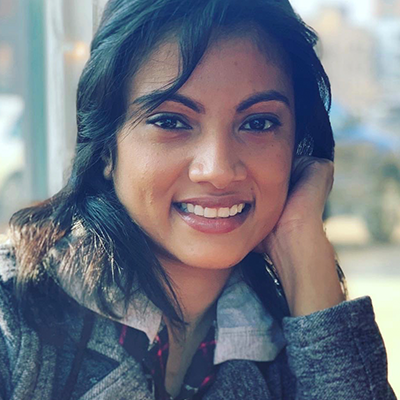
Resha Tejpaul, University of Minnesota, Minneapolis, United States
-
Bio
Resha Tejpaul is a research professional at the University of Minnesota — Twin Cities. She has a Bachelor of Arts in Physiology and Biochemistry, and her research interests are in digital medicine and urologic oncology.

Nour Abdallah, Cleveland Clinic, Ohio, United States
-
Bio
Nour Abdallah is a Postdoctoral Research Fellow at the Urology Research Department in Cleveland Clinic, Ohio. She graduated from the faculty of Medicine of Saint Joseph University in Beirut, Lebanon in July 2021. Her research work primarily focuses on AI in renal mass characterization.

Tarik Benidir, Cleveland Clinic, Ohio, United States
-
Bio
Tarik Benidir is a Clinical Fellow at the Society of Urologic Oncology (SUO), and serves as a physi- cian at the Glickman Urological and Kidney Institute in Cleveland Clinic. Dr. Benidir obtained both his B.Sc and M.Sc at McGill University in Montreal, Canada. His Masters was aimed at understanding how advanced prostate cancer progresses despite hormone therapy. He than pursued his medical school training (2012-2016) at Queen’s University School of Medicine in Kingston, Ontario, Canada. He was selected into the Urology residency training program at the University of Toronto (2016-2021) where he completed his FRCSC degree (Fellow of the Royal College and Surgeons of Canada) in Urological training. Since then, He has commenced a fellowship training program in urologic oncology at Cleve- land Clinic, Ohio. Dr. Benidir’s interests are in better understanding tumor multifocality in prostate cancer as well as improving the use of genomics and radiomics to improve treatment selections for these patients, notably within focal therapy. In addition, he has an interest in radiographic machine learning within both prostate and kidney cancer space, including diagnostic improvements and theranostics. Dr. Benidir has an outside interest in leadership training and is the co-founder of an interview training and preparatory program called MMI Made Easy (www.mmimadeeasy.com) which has aided numer- ous young academics achieve their true potential and become accepted into competitive professional programs.

Steve C. Campbell, Cleveland Clinic, Ohio, United States
-
Bio
Steve C. Campbell is Professor of Surgery, Associate Director of Graduate Medical Education and Program Director and Vice Chair, Department of Urology at Cleveland Clinic. Dr. Campbell obtained BS, MD and PhD degrees at The University of Chicago and then did a Urology Residency at The Cleveland Clinic (1989-1995), followed by a fellowship in Urologic Oncology at Memorial Sloan Ketter- ing Cancer Center (1995-1996). Dr. Campbell’s primary interests have included renal cell carcinoma, bladder cancer, tumor angiogenesis, and urology residency training. His background also includes American Foundation for Urological Diseases (AFUD) and Kimmel Research Scholarship Awards. He has served as Chair of the Exam Committee for the Society of Urologic Oncology and President for the Society of Pelvic Surgeons. Dr. Campbell was Chair for the AUA Guidelines Panel for Management of Localized Kidney Cancer (2017 and 2021), and was Co-Chair for the previous iteration of this in 2009. Dr. Campbell was Co-Editor of Renal Cell Carcinoma (BC Decker, 2009) and Editor of Renal Cell Carcinoma: Clinical Management (Humana Press, 2013) and 100 Questions and Answers about Kidney Cancer (Jones and Bartlett, 2008, 2012, 2015, 2018, and 2021). Dr. Campbell has also authored or co-authored “Malignant Renal Tumors” for Campbell/Walsh Urology for the past 5 editions (2000, 2005, 2010, 2015, and 2018). Over the past decade Dr. Campbell’s academic work has focused on the role of PN and RN in the management of RCC, the determinants of functional recovery after PN, the survival implications of differences in renal function after renal cancer surgery, the use of neoadju- vant TKI’s to enable PN and optimize functional outcomes, and the functional implications of tumor enucleation. In 2019 Dr. Campbell received an AUA Distinguished Contribution Award for sentinel research in the field of urologic oncology, particularly in the area of renal neoplasia and in 2020 he received the Andrew C. Novick Award from the International Kidney Cancer Association.
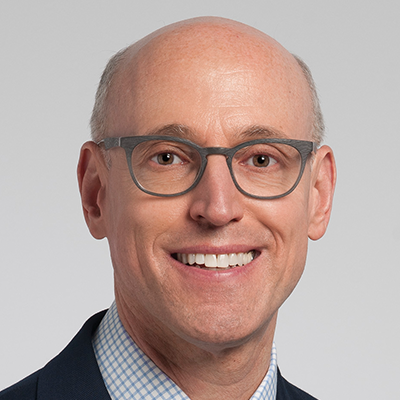
Erick Remer, Cleveland Clinic, Ohio, United States
-
Bio
Erick Remer is Professor of Radiology and Director of Abdominal Imaging Research in the Section of Abdominal Imaging in the Imaging Institute at the Cleveland Clinic. He completed his undergraduate 6 Authors Suppressed Due to Excessive Length and medical degrees at the University of Michigan, a transitional internship at Henry Ford Hospital, and residency and was Chief Resident at Northwestern University. He then returned to Ann Arbor to complete a fellowship in Computed Body Tomography, MRI, and Ultrasound. Dr. Remer is ac- tively involved in many of Radiological organizations and has served as Chair of the GU Scientific Program Committees for the RSNA and ARRS, as a member of the Education Program Committee and Annual Meeting Council Advisory Board of the Society of Abdominal Radiology, and as Urological Imaging Specialty Chair of the ACR Appropriateness Criteria. He was honored to be the 2018-19 SAR Igor Laufer Visiting Professor, is currently SAR Portfolio Director for Member Engagement, and is the Chair of the ACR Appropriateness Criteria Harmonization Committee. Dr. Remer is Director of Abdominal Imaging Research at the Cleveland Clinic and his interests lie predominantly in the area of Genitourinary Imaging. He has participated in over 180 peer-reviewed publications, 169 abstract presentations, and 143 invited presentations including three named lectures.

Antonio Foncubierta , IBM Research - Zurich, Switzerland
-
Bio
Antonio Foncubierta is a Research Staff Member at IBM Research, where he leads the Computa- tional Pathology team. He received the PhD in Computer Science degree from University of Geneva, Switzerland in 2014; worked as a research assistant from 2010 to 2014 at the Medgift group at Business Informatics Institute of the University of Applied Sciences and Arts Western Switzerland and then as a postdoctoral researcher at the Computer Vision Lab of the Swiss Federal Institute of Technology Zurich (ETHZ).
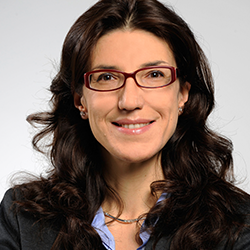
Maria Gabrani, IBM Research - Zurich, Switzerland
-
Bio
Maria Gabrani is manager of the Cognitive Healthcare and Lifesciences group that focuses on ingesting, analyzing and integrating textual, imaging and molecular data for building health knowledge and disease understanding and supporting decision making in numerous applications. She has also global IBM Research roles, as one of the strategists in Future of Health and specifically in the areas of oncology and knowledge representation, as well as a member of the Exploratory Lifesciences Council of IBM Research. Before joining IBM, from 1999 until 2001, Maria worked for Philips Research, in Eindhoven, The Netherlands. She has co-organized a number of Workshops, with the latest being the AIDP Worskhop in ICPR2020, the LL-COVID19 Workshop in MICCAI 2021, and the ELAINE Workshop in AMIA 2021.
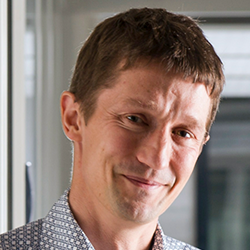
Henning Müller, HES-SO, Valais, Switzerland
-
Bio
Henning Müller is a professor in computer science at the HES-SO in Sierre, Switzerland, and in medicine at the University of Geneva, Switzerland. Henning is also one of the co-authors of the BIAS checklist [4].
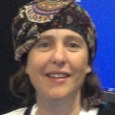
Efrat Hexter, IBM Research - Haifa, Israel.
-
Bio
Efrat Hexter is a Medical Imaging Analytics research team manager at IBM Research - Haifa, focuses on using and developing AI to improve healthcare. She leads various Healthcare AI projects, including taking a research idea to deployed applications in a clinical site. She has 20 years of experience in software development, spanning various fields, from gaming to location-based applications and data management and analytics. Both at IBM and different startups.
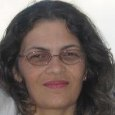
Simona Rabinovici-Cohen, IBM Research - Haifa, Israel.
-
Bio
Simona Rabinovici-Cohen is a researcher and architect in the Medical Imaging Solutions group at IBM Research — Haifa. She holds M.Sc. and B.Sc. degrees in computer science, both from the Technion - Israel Institute of Technology. She has been focusing in the areas of machine learning, biomedical informatics, big data and storage systems for the cloud. Simona participated in the organization team of the digital mammography dream challenge [21].
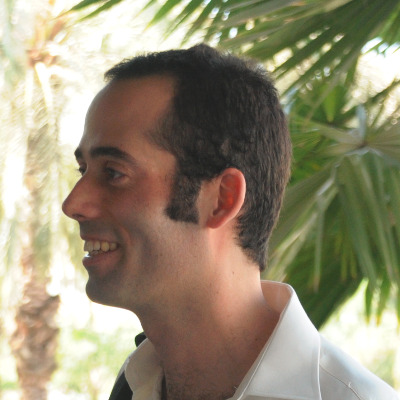
Yoel Shoshan, IBM Research - Haifa, Israel.
-
Bio
Yoel Shoshan is a machine learning, deep learning, computer vision and computer graphics re- searcher. He is currently working in the Medical Imaging Analytics group in IBM Research. Experi- enced in medical imaging classification, detection and segmentation, in multiple modalities. Was part of a team reaching top 3 winners in both DBTex grand challenge [19] (3d mammograms lesions detection) and KITS21 competitions (kidney, tumors and cysts segmentation).
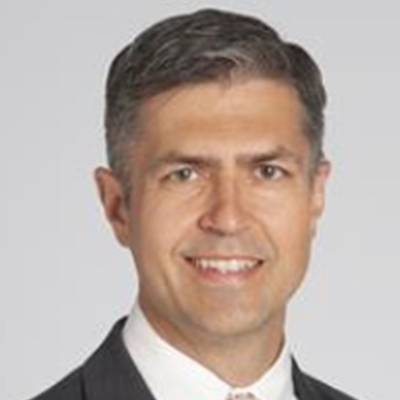
Christopher Weight, Cleveland Clinic, Ohio, United States
-
Bio
Christopher Weight is the Center Director for Urologic Oncology at the Cleveland Clinic. He also directs the SUO Urologic Oncology Fellowship at Cleveland Clinic. He is a graduate of University of Utah School of Medicine. After completing medical school, Dr. Weight successfully completed his residency at Cleveland Clinic and fellowship in Urologic Oncology at the Mayo Clinic. During this time he also completed a Master’s Degree in Clinical and Translational Research at the Mayo Graduate School. He splits his time between patient care, education and research. He has published over 125 articles, and is an NIH funded researcher as either a PI or Co-I on four R01 grants. His areas of research have focused on environmental exposures that may lead to genitourinary cancers as well as utilizing artificial intelligence to help personalize the treatment of patients with GU malignancies. He is the clinical director of KiTS21. Finally, Dr. Weight is passionate about celebrating and elevating those affected by kidney cancer through the non-profit organization he founded called Climb 4 Kidney Cancer.
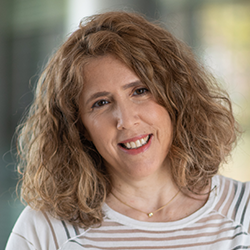
Michal Rosen-Zvi, IBM Research - Haifa, Israel.
-
Bio
Dr. Rosen-Zvi is a Director of health informatics at IBM Research and a visiting professor at the Faculty of Medicine, The Hebrew University. At IBM Research she co-leads the research strategy of a worldwide team who are experts in AI applied to health data and she is the local senior manager of the IBM Research Haifa department who focuses on deep learning, machine learning and casual inference technologies applied to patients data. Michal holds a PhD in computational physics and completed postdoctoral studies at UC Berkeley, UC Irvine, and the Hebrew University in the area of Machine Learning. She joined IBM Research in 2005 and has since led various projects in the area of machine learning and healthcare. Michal has published more than 40 peer-reviewed papers and served as program committee in conferences such as AAAI, ICML and UAI and reviewer in journals such as Machine Learning and Nature. She serves at various boards and committees such as the Israeli national digital health committee and is elected to serve at the managing board of the Israeli Society of HealthTech.


